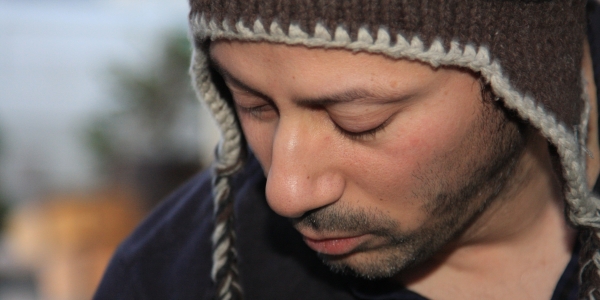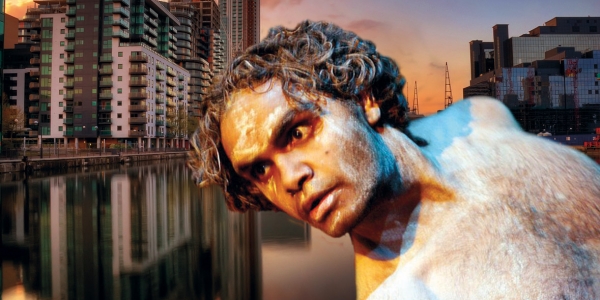The popularity of it was great because previous tracks had been making a lot of waves with big name DJs not but really selling so much, yet getting on CD compilations – so it was nice to finally get noticed more widely. Call And Response was influenced by the emerging progressive techno sound of the time – and it just flowed when I made it. The sound was very current and exciting at the time and it had a lot of impact in the clubs, particularly the slightly bigger arenas. But to be honest, the second track from the EP, The Trinity, was actually my favourite one but I rushed this out a bit when I could have toned down parts to make a less noisy version which would have made more waves on the techno scene.”
While Harcourt still plans to do this in the near future – claiming the track causes “serious damage” in techno clubs when used properly – he is just as proud of his more recent efforts such as the new single A Beautiful Surprise and the remix Bells And Whistles.
“Well, just prior to the New Year, I released my single A Beautiful Surprise, and that has been doing pretty well. It actually hit number two on DJ Download on Christmas Day, so that was nice. Also, I released a remix of Canadian techno duo Aerodroemme who I just signed to my label [Twisted Frequency Recordings]. This is one of my favourite remixes that I have done, it’s called Bells And Whistles and that just got released. Prior to that, I made my EP Dankeshoen/Bitteschoen quite early in 2011 and I tested the tracks on my Canadian tour last April. Dankeshoen was the headline track and that took about a day to get the groove and sounds right – and a few hours here and there over the course of a week to arrange it properly. The second track Bitteschoen took longer. Dankeshoen started off as a bouncy groove with a large, round bassline and a carefully carved Moog patch. Once all the components are right, quite often the arrangement tends to suggest itself.”
Although a self-confessed ‘lone wolf’ when it comes to his approach in the studio, Harcourt reveals that lately he’s been considering collaborating with vocalists. It’s an experiment he is ever so excited to try out in the New Year.
“I always work alone for production – I’m too weird and random for others to put up with, I think. I really don’t understand this thing of getting someone else to ‘engineer’ tracks for you, I believe it has to be personal – and that means doing it yourself. I find the presence of other people in the studio environment can interfere with the kind of process needed to get inspired. I’ve always done my own production. Between 2005 and 2006 I used a guy I knew to mix down and master the tracks, but no creative input. I started to do the mix down myself from late 2007 and now only the mastering is done externally – mostly because it’s better to have fresh ears on that job, plus my monitoring speakers and room aren’t really very good for mastering.”
While Harcourt isn’t keen to reveal any vocalist names with whom he plans to record this year, he does claim that the new tracks will see him taking a bit of a trip in time circa 1996-1998 when he first felt the impact of techno, trance and house.
“I would love to work with a really strong vocalist right now and it’s something I plan to do in 2012. I have someone in mind, but I won’t reveal them just now. Influences on my dance work are almost too numerous to mention – but subconsciously a lot of the first techno, trance, progressive and house tracks I heard from mid-to-late ‘90s still have an impact on me because I was so dramatically affected when I first discovered this music around that time. My life was a bit of a mess back then and I didn’t really have much direction, but the music and clubbing from those years and those summers changed me forever. I was also entirely self-taught in production, which is why it took me so long to get things right. I would have really benefitted from spending time with some other producers, I think, but as I said, I wasn’t so focused in those days and I spent a lot of time in the kind of state where sensible thinking wasn’t really happening…”
These days, Harcourt is a father of two and takes his music career very seriously, indeed. And while his influences remain the same, he claims he’s been taking a bit of a different direction lately.
“Well, there has always been a common theme of tech in my productions and sets – it started quite progressive and there have been moments infused with minimal, techno, house and electro along the way. But I think there is a common vibe. Recently I have been toning down the basslines in my productions and doing more sophisticated percussive lines and grooves and this has been really working in the underground parties I’ve been playing. I’ve been leaning a bit towards organic sounds but just in the last month I’ve been reaching for my Moog and Nord synths and getting more into the electronic sounds again.”
Well, that’s just a short description of what you get with Harcourt for those unfamiliar with his tracks, but we’re about to find out a lot more about this UK DJ when he makes his first visit to Australia this month.
“From my hard-partying days and UK DJ gigs, I know that the Aussies – or certainly the Aussies in the UK clubs – are great party people! If they’re all like that over there, it’s obviously happy days! Production-wise, I have always been a fan of Infusion and Jamie Stevens – and from my baptism of clubbing, Anthony Pappa I think qualifies as an Aussie, though I think he lived in London mostly. Of course, there are other progressive stalwarts such as the Quench/Vapour guy Kasey Taylor who has made a massive contribution to the progressive scene worldwide. But no, I’ve never been to Australia, New Zealand or the Pacific Islands before. I’ve had a few sporadic offers and in 2009 there was a tour offer which didn’t happen in the end. Most of my activity has been in Europe and India, with a few visits to the U.S. and Canada, so I’m really excited going into 2012.”
BY BIRDIE

